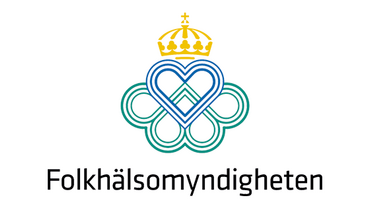Sweden’s advice-making process on schools during the COVID-19 pandemic: Good practices and lessons learnt
The public health advice-making process on schools in Sweden during the COVID-19 pandemic from November 2020 to April 2021 has undergone an After-Action Review (AAR), with results now available in a new report by ECDC and the Public Health Agency of Sweden, Folkhälsomyndigheten.
During this period in Sweden, advice on distance learning in upper secondary schools was introduced while other schools were kept open, with infection control measures applied. The basis for public health advice on schools during the COVID-19 pandemic included national epidemiological data and other types of evidence, in particular knowledge on the social determinants of health, and the broader social and health effects of school closures for children and families.
Advice on schools was developed in collaboration with multiple stakeholders, working particularly closely with the Swedish National Agency for Education and the regional county medical officers. The impact of school interventions on health outcomes and the broader impact on society and well-being for students, schools, teachers and families as well as socio-economic inequalities were all considered when formulating advice. Over time, the advice was changed in light of new evidence.
ECDC Director Andrea Ammon said:
This after-action review from Sweden demonstrates the complexity of decision-making during the pandemic around certain public health and social measures, such as school closures, which were designed to curtail SARS-CoV-2 transmission but which also affected children and in particular those from vulnerable groups. Pandemic preparedness plans everywhere should be updated to account for such complexities, through activities such as enhancing cross-sectoral coordination, developing strategies for communicating the rationale behind recommended measures and establishing approaches for listening to the affected stakeholders.
We are grateful to Folkhälsomyndigheten for taking the time to share their experiences, lessons learned and good practices.
Karin Tegmark Wisell, General Director of The Public Health Agency of Sweden, said:
Already at the onset of the pandemic, we aimed at addressing prevention of disease transmission through infection control measures to be able to avoid school closures and to keep distance learning at a minimum, because of its negative impact on children’s health. It was a complex task which required collaboration on many levels, as is also confirmed by the findings in this AAR.
The review identified several types of relevant data that were missing during the advice-making process, such as direct data on children’s perspectives, including how they experienced distance learning and other measures. Current aggregated data on student absenteeism in schools were not available either, making it difficult to provide evidence-based advice.
Several guiding principles applied in advice-making were identified during the after-action reviews, such as a clear focus on providing advice that is best for children, the responsibility of adults to bear the burden of stopping disease spread, the obligation of ensuring equal access to schooling for all students, and a priority to keep schools open.
Key good practices identified by review participants included cross-sectoral collaboration between health and educational agencies and ministries, having a set of guiding principles for analysis and advice, as well as developing accessible, comprehensive and continually updated technical reports on evidence for school interventions and their consequences.
Examples of lessons learned focused on clearly communicating the reasons, logic, and evidence for recommended actions based on a comprehensive health perspective, taking into account multiple perspectives when performing public health research, and listening to affected stakeholders including children.
After-action reviews serve as a means for identifying best practices and areas for improvement for future health emergencies. The series of ECDC-initiated AARs following the COVID-19 pandemic are led and owned by the respective countries in the EU/EEA. The AAR on the Swedish school advice was conducted in a two-day consultative workshop and subsequent semi-structured interviews with key stakeholders. It is the first AAR report following the COVID-19 pandemic in the EU/EEA.







